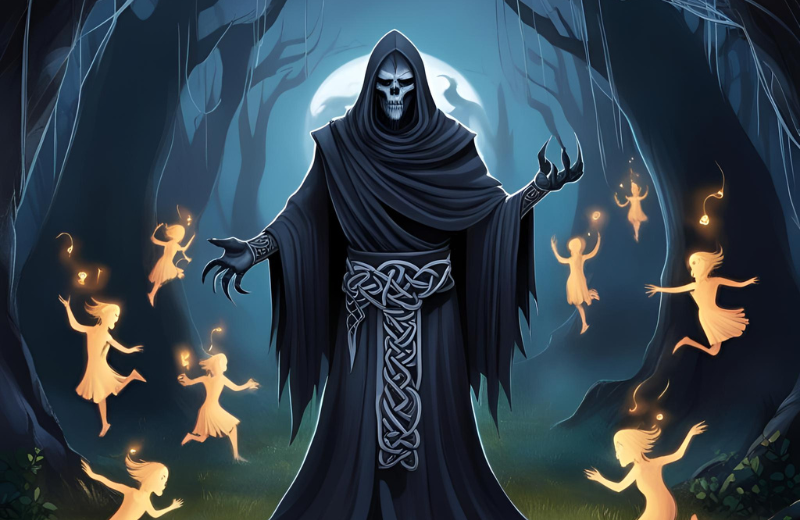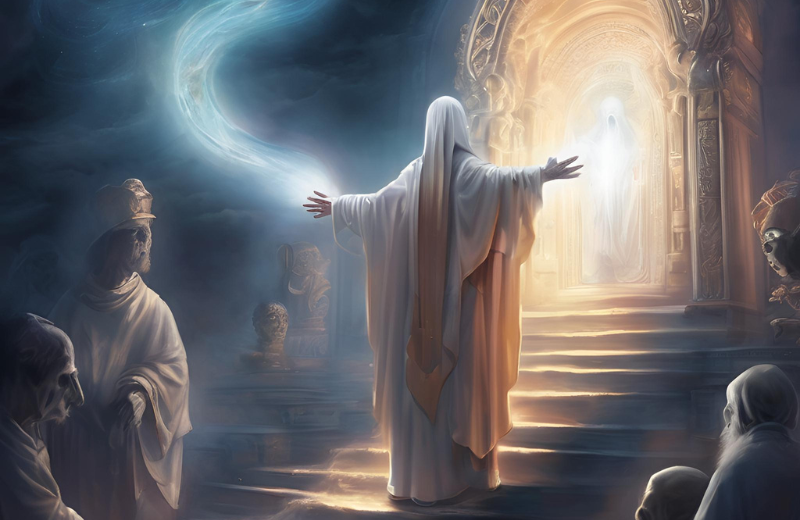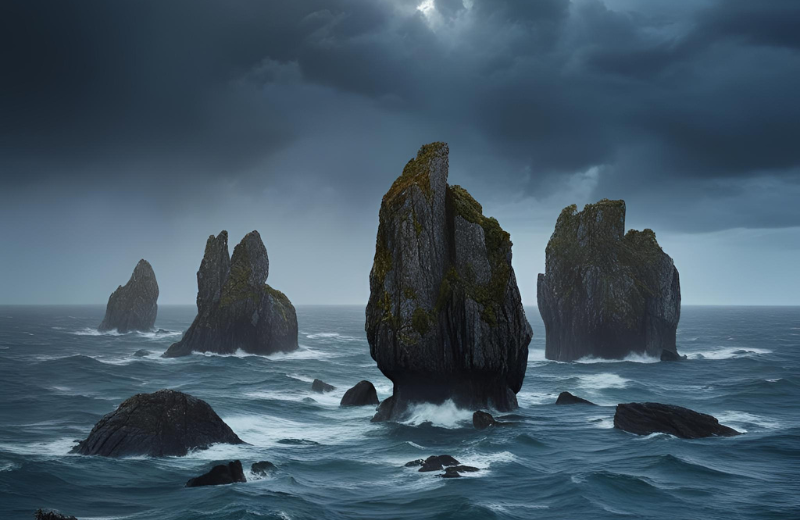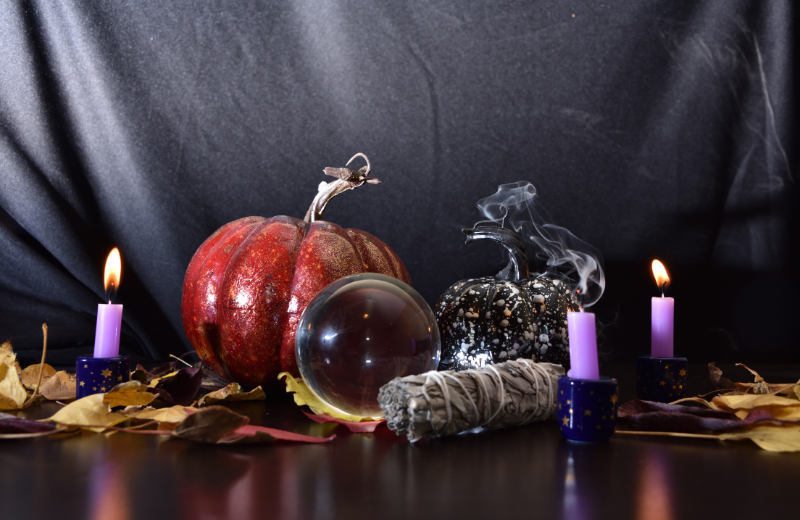If you're fascinated by ancient legends, the mysteries of the afterlife, or the deities once worshipped in Ireland’s distant past, you may find yourself drawn to Donn. As the Irish god of death, Donn plays a powerful, if somewhat shadowy, role in Celtic mythology. Understanding who he was, what he symbolised, and how he was worshipped opens a window into the early Irish worldview and its ideas about life, death, and the beyond.
This blog guides you through the myths and meanings behind Donn, explains his powers and symbols, and explores why he continues to hold significance even today.
Jump to:
- Who Was Donn in Celtic Mythology?
- Donn’s Myths
- The Role of Donn in Celtic Storytelling
- What Powers Did Donn Possess?
- Symbols Associated with Donn
- Donn’s Lineage and Connections
- Why Is Donn Special?
- Donn in Modern Culture
- Donn’s Worship and Legacy
- Frequently Asked Questions About Donn
- Study Celtic Mythology for £29
Recommended for you!
Best SellersWho Was Donn in Celtic Mythology?
Donn is one of the oldest and most enigmatic figures in Irish mythology. He’s often referred to as the Celtic death god and is considered the first ancestor of the Gaelic people. In ancient tales, he’s both a figure of fear and a ruler of the afterlife — a kind of spiritual gatekeeper who awaits those passing from this world to the next.
The name Donn comes from the Old Irish word meaning “brown” or “dark,” and its meaning is tied to darkness, earthiness, and mystery. These associations are deeply connected to his role as a god of death and the dead.
Donn’s Myths

Stories about Donn are few but powerful, often centring on death, ancestry, and the soul’s journey. Though shrouded in mystery, the myths that survive offer deep insights into how the ancient Irish viewed the afterlife and its divine guardian.
Donn and the Voyage of Míl Espáine
One of the most well-known myths places Donn aboard the ship Míl Espáine, which carried the ancestors of the Irish people from Spain to Ireland. Donn, having offended the goddess Ériu, was struck down by a storm before reaching land, his body washed ashore at Tech Duinn, “the House of Donn,” a rocky island believed to be a gathering place for the dead.
Donn as the Guardian of Tech Duinn
In another myth, Donn is not merely a casualty of divine wrath but a powerful figure presiding over the dead from his house on the island. According to legend, all souls of the deceased travel west to Tech Duinn before continuing to the afterlife, and it is Donn who judges or prepares them for what lies ahead, making him a psychopomp — a guide of souls.
Donn and the Ancestors of the Gaels
A lesser-known tale describes Donn as the first of the Gaels to die in Irish myth, thus taking on the role of ancestral guardian. In this version, Donn voluntarily assumes his position in the afterlife to watch over future generations, making Tech Duinn not just a place of death, but of ancestral connection and continuity.
The Role of Donn in Celtic Storytelling
In early Celtic storytelling, Donn represented a worldview. The Celts didn’t have a clear division between life and death the way many modern cultures do. Donn’s role helped bridge that gap.
He was often mentioned in funeral traditions and poems, where the journey to Tech Duinn marked the soul’s passage from the physical to the spiritual world. While feared by some, he was also respected as an eternal figure watching over ancestors and descendants.
What Powers Did Donn Possess?

Donn was no ordinary figure in Irish myth. As the Celtic death god, his powers were more spiritual than physical, yet they carried immense influence over the journey between life and death. His powers included:
- Guiding souls to the afterlife: Donn was believed to oversee the passage of the dead to Tech Duinn, the gateway to the next world.
- Spiritual authority: He ruled the house of the dead and was thought to have control over who entered and when.
- Ancestral connection: Donn held a unique place as the first ancestor of the Gaels, with the power to watch over and influence the fate of future generations.
- Eternal presence: Unlike mortal beings, Donn existed outside the bounds of time, remaining ever-present in the spiritual realm.
Symbols Associated with Donn

The symbols of Donn are deeply tied to death, the sea, and the landscape of Ireland. They speak to his role as a guardian of souls and a figure rooted in the natural and spiritual world. Some of the most common include:
- Tech Duinn (The House of Donn): A real island believed to be the gathering place of the dead, representing his domain.
- The Sea: Associated with Donn’s mythic voyage and the journey of souls to the afterlife.
- The Colour Brown: A symbol of earth, decay, and transition.
- Rocky Islands or Coastal Cliffs: These are often seen as liminal spaces where the living meet the dead, tied to Donn’s story.
- Storms and Winds: As a figure who died at sea and commands the journey of souls, Donn is sometimes linked to the wild weather of Ireland’s western coasts.
Donn’s Lineage and Connections
Donn’s origins and connections vary across Irish myths, adding depth to his role as both a death deity and an ancestral figure. In many traditions, he is described as the son of Míl Espáine, the legendary ancestor of the Irish people, making Donn the first of his kind to die in the mythic migration to Ireland. This death is what gives him the right to rule over Tech Duinn and the spirits of the departed.
Some tales connect Donn to Diarmuid Ua Duibhne, the tragic hero of the Fenian Cycle, who is sometimes described as Donn’s son. While this link is not consistent across all versions, it places Donn within the broader heroic traditions of Irish mythology, showing how his legacy extends through both divine and mortal bloodlines.
Unlike gods associated with battles or harvests, Donn’s connections are less about action and more about presence; he’s the ever-watching ancestor, a silent guardian of souls. His role ties him to the land, the dead, and the very lineage of the Irish people, marking him as an enduring force in the cycle of life and death.
Why Is Donn Special?
Donn stands out in Irish mythology not for wild adventures or spectacular feats, but for his role as a spiritual anchor. His presence reminds people of the importance of ancestry, memory, and the soul's journey.
Unlike gods of war or fertility, Donn’s domain is quieter but no less significant. He represents where people come from and where they go. His myth helps make sense of mortality without fear, offering an image of continuity rather than finality.
Donn in Modern Culture

Today, Donn continues to be recognised as a powerful figure in modern Celtic-inspired spirituality, particularly within Pagan, Druidic, and ancestral veneration practices. During Samhain, the festival that marks the thinning of the veil between worlds, Donn is sometimes invoked in rituals as the guardian of souls. Offerings may be made to honour ancestors and seek guidance from the spirit world.
In literature, Donn appears in both contemporary retellings and academic studies of Irish mythology. He’s mentioned in Peter Berresford Ellis’s A Dictionary of Irish Mythology, where his role in death lore and genealogy is explored in detail. His story is also reimagined in modern mythological fiction, such as The Death of Donn by Eileen Sheehan, which presents a poetic interpretation of his fate.
Donn’s archetype often emerges in visual storytelling, including television and games that draw inspiration from Celtic folklore. Characters who rule over the dead or dwell on isolated, mist-covered shores frequently echo his image, even when not explicitly named. In Irish folklore theatre and live heritage performances, Donn is sometimes portrayed as a mysterious, brooding figure who watches over the boundary between life and death from the far west.
His influence can also be felt in music and spoken word poetry, particularly in works that explore themes of mortality, ancestry, and connection to the land. Some Irish artists invoke Donn in name or spirit, especially in traditional music linked to Ireland’s western coast, the region long associated with Tech Duinn, the legendary gathering place of the dead.
Donn’s Worship and Legacy
Although specific ancient rites have faded, Donn’s memory endures through myth, location, and spiritual reverence. If you're drawn to honouring Donn today, practices often centre on reflection, remembrance, and connection with ancestors. Visiting rugged coastlines, particularly those in the west of Ireland, like County Kerry’s Bull Rock, believed to be the site of Tech Duinn, can be a moving experience for those seeking to connect with Donn’s presence.
Creating a simple ritual space or altar featuring symbols like stones, shells, or candles can offer a grounding way to honour him. Many people light candles on Samhain night to guide the spirits of the dead, sometimes addressing Donn directly as a guardian and guide.
Recommended for you!
Best SellersFrequently Asked Questions About Donn
How do you pronounce Donn?
Donn is typically pronounced like “dun” (rhyming with “sun”).
Is Diarmuid the son of Donn?
In some mythological versions, Diarmuid Ua Duibhne is described as Donn’s son, which links the god of death to the heroic Fenian Cycle and suggests a divine lineage.
What is the House of Donn in Ireland?
The House of Donn, or Tech Duinn, is believed to be a rocky island off the west coast of Ireland where the souls of the dead assemble. It serves as a mystical threshold between the world of the living and the realm of the dead, watched over by Donn himself.
Study Celtic Mythology for £29
If learning about figures like Donn has sparked your curiosity, why not learn more about ancient Celtic legends? With Centre of Excellence’s Celtic Mythology Diploma Course, you can explore the fascinating myths, gods, and symbols that shaped ancient Celtic culture.
Whether you're passionate about history, spirituality, or storytelling, this course is engaging for everyone—no prior experience needed. Plus, by following the link below, you can enrol today for the discounted price of just £29.













